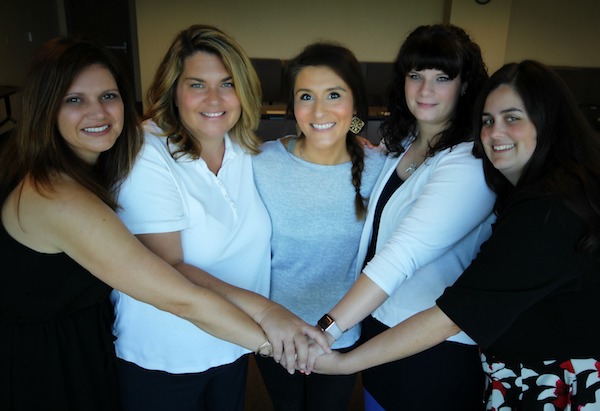
Psychological First Aid
When a disaster or crisis strikes, Family & Children’s Service’s Psychological First Aid (PFA) Teams can help. PFA mobilizes to provide support and comfort, reduce the initial distress caused by traumatic events and foster short- and long-term adaptive functioning and coping. This evidence-informed approach is for children, adolescents, adults, and families in the immediate aftermath of disaster and terrorism. PFA is used by individuals, schools, companies, churches, banks with robberies and various other community organizations.
Immediately after a crisis event, those who assist are often family members, neighbors, teachers, community members and first responders of various kinds (emergency medical teams, police, firefighters). PFA is important because people do better over the long term if they feel safe, connected to others, calm & hopeful; have access to social, physical & emotional support; and regain a sense of control by being able to help themselves.
Call us for help with:
- Non-intrusive, practical care and support
- Assessing needs and concerns
- Helping people to address basic needs (food, water)
- Listening, but not pressuring people to talk
- Comforting people and helping them to feel calm
- Helping people connect to information, services and social supports
- Protecting people from further harm
Holding safe space to grieve and heal in Broken Arrow and Jenks
Originally published in October 2018
Since July, two events have shaken the core of both the Jenks and Broken Arrow communities in the aftermath of tragic, and sudden, deaths of children and teens.
In July, the Jenks community recently faced these questions after a car crash south of Oklahoma City ended the lives of one adult and three children.
On Sept. 29, Jaymeson West, a junior at Broken Arrow High School, died after falling from the top of the school’s football stadium. According to a Facebook post from his father, Michael West, he had been battling depression “climbed over the stadium railing and jumped.” On Sunday, Shane Anderson, a Broken Arrow middle school teacher was shot and killed in front of his family.
What feelings and behavior are normal when tragedy strikes? How do you help children who have never experienced the loss of a friend or peer?
The Family & Children’s Services’ (FCS) Psychological First Aid team was brought on after both events to help reduce distress and promote successful coping and functioning. This compassionate team of therapists has been working in Broken Arrow since Saturday when 14 therapists were brought on site at the high school.
“This took a whole team with all children’s services to ensure that our Broken Arrow students and other children affected by this trauma’s needs were attended,” said Chief Program Officer, Children’s Mental Health and Family Support Whitney Downie.
Adam Dodd, FCS clinical supervisor was with Broken Arrow students on Monday as they tried to make sense of the unthinkable. “Yesterday should have been just another Monday, but everything had changed for them since Friday night and nothing was going to be the same for them again,” he said. Some students who witnessed the tragedy were feeling numb and losing sleep. The First Aid Team linked these students with additional services to help with the work of healing. Others just needed a shoulder to cry on and had big questions like ‘why does something like this happen?’
Since Friday, the call volume for COPES (918.744.4800), has increased. COPES is a specialized team dedicated to responding to crisis calls 24/7. COPES is trained to help students not doing well emotionally and struggling with coping with an upsetting/traumatic event.
In July, the FCS team worked for three days at Jenks Middle School in partnership with Jenks Public Schools counselors and linked immediate family still in the hospital with Oklahoma City’s North Care mental health center. FCS Program Director Faith Crittenden said, “Most of the parents and children wanted to know if what they were experiencing was normal grief.”
Children, like adults, need to express their grief in their own way. Sudden and accidental deaths can be devastating. It is often a loss that doesn’t make sense and the grieving process can be intense.
Dodd said, “We showed them that small actions – a smile, a wave, asking someone how they’re doing, a hug – can cause big ripples and everyone doing their part like this can save lives.”
FCS Clinical Supervisor Cari Gibson said when talking to a mother in shock and devastation, “She was so worried about her son that she didn’t realize she was grieving herself. I shared with her the normal stages of grief, and warning signs to watch out for with herself and her son while dealing with the loss. When she left, she had calmed and was feeling more confident in her ability to help her son through the tragedy. ”
Many families struggled with wanting to know how to manage the following days with news reports, how to monitor social media for their teens and even themselves, and what signs to watch for if their teens or teen’s friends seemed to struggle more over the following weeks. The team covered how to talk to children and support them through this crisis, provided resources for parents and referrals if grief counseling was needed.
FCS Program Director Nichole Duck said, “My response during my time in Jenks and Broken Arrow was a human one – to be present and listen. I wanted to give families a safe space to share their stories and grieve.”
Downie said, “I’m so proud of the team. There was no hesitation on the weekend come and help a community in need. We are grateful for all the community providers who extended their services during the most difficult times.”

Family & Children’s Services Psychological First Aid Team


